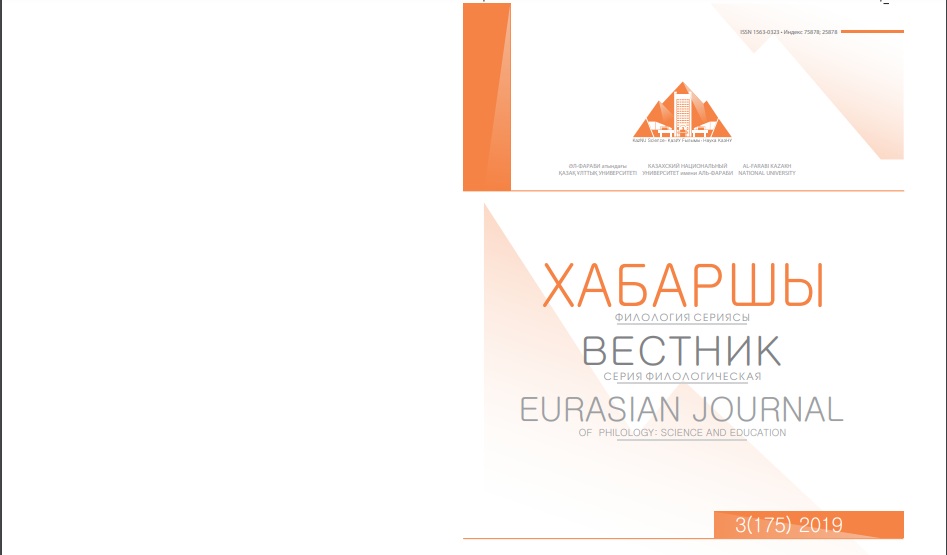The phenomen of bicultural aesthetics in translation (based on Kazakh and English poetry) .
DOI:
https://doi.org/10.26577/EJPh-2019-3-ph26Abstract
The article is devoted to the poetic analysis of the phenomenon of bicultural aesthetics based on
poems of the prominent Kazakh poets, whose works have been translated into many world languages.
Poetic heritage and translations of the poet serve as a factor of bicultural and simultaneously conjugative aesthetics. Translation analysis clearly shows that the creative writings of Kazakh poet is a bright
example of not only lingual–cultural but also artistic and aesthetic interferentiality. This is a condition
for simultaneous “destruction” of aesthetic integrity of the original and formation of a new one in the
translation. We have outlined this phenomenon as conjugative one. This is a condition for simultaneous
“destruction” of aesthetic integrity of the original and formation of a new one in the translation. We have
outlined this phenomenon as conjugative one. Thanks to the introduction into the text of the translation
of Kazakh words and symbols, foreign reader often gets first emotional information of communicative,
evaluative, abstract synthesis, modal, explanatory nature at the unconscious level, in other words, it
focuses on the fact that (identification of common relations with surrounding reality) is common for its
perception, and is alien single (about specifics of national picture of the world or fragments (often visual:
ornaments, yurts, whip, etc.), and only after that receives the implicit access to the world of content
and form of artistic work.






